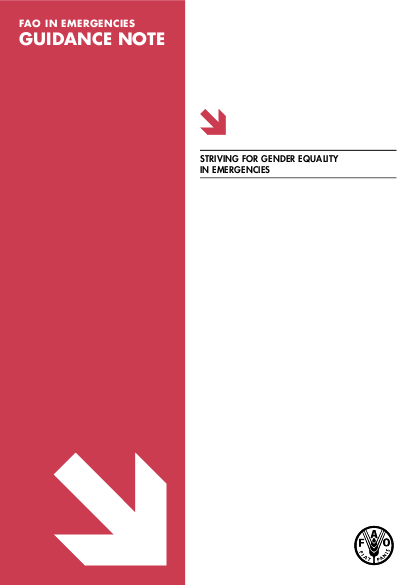
Gender equality is central to FAO’s mandate to achieve food security by raising the levels of nutrition, improving agricultural productivity and natural resources management, and improving the lives of rural populations. Crises, conflicts or natural disasters do not affect everybody equally. In wartime, women and children disproportionally suffer; in natural disasters, women are up to 14 times more likely than men to die. Men’s and women’s different needs, priorities and capacities need to be considered for FAO’s emergency and rehabilitation work to be effective and durable. A gender-sensitive disaster risk management (DRM) approach increases the resilience of vulnerable men and women of all ages, their capacity to recover from disasters in a sustainable manner as well as their ability to contribute more effectively to, and benefit more fully from, opportunities offered by emergency and transition programming.